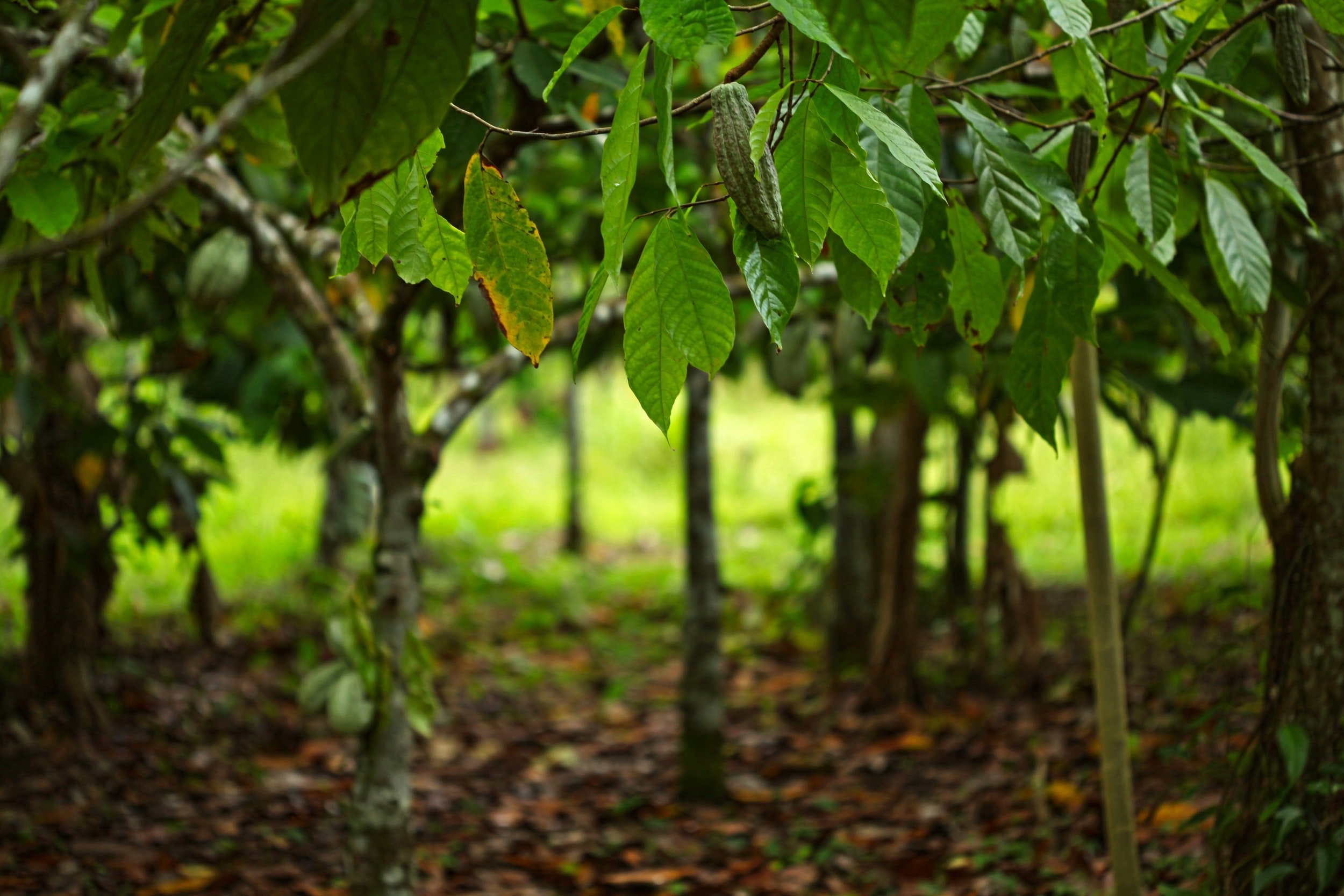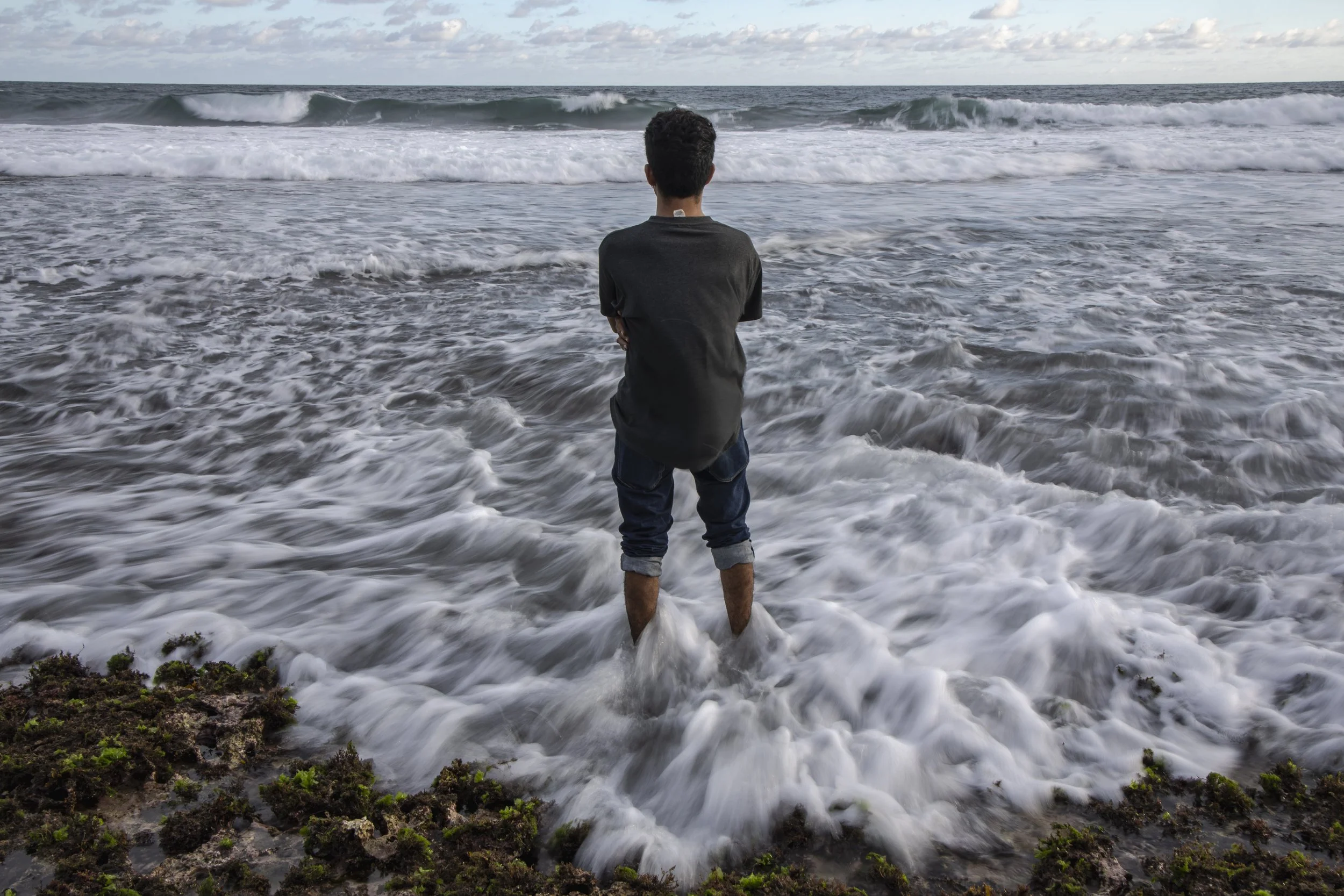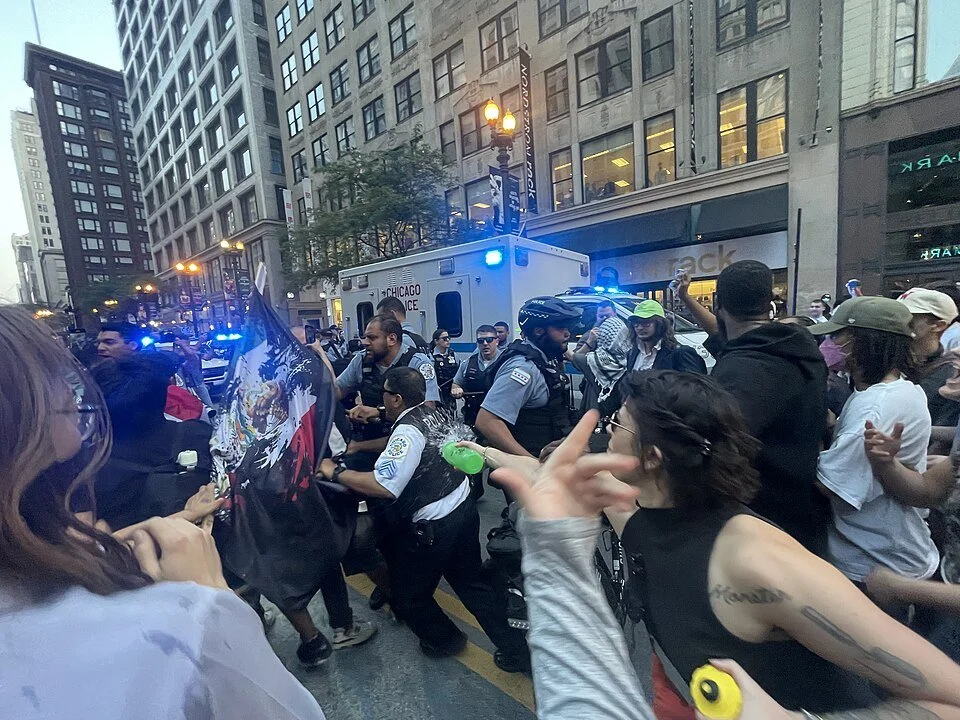Combating Forced Labor
Across the world, 25 million people are subject to forced labor in industries that range from cocoa to cotton to coffee. Additionally, an estimated 79 million children are engaged in hazardous child labor, which is one of “the worst forms of child labor.” Young children use machetes, carry heavy loads, spray pesticides, and do other dangerous tasks, all forms of hazardous child labor that children are incapable of consenting to. Child labor that requires children to work at the expense of their health, schooling, or well being must be considered forced. Forced labor and exploitative labor practices are not “errors” in supply chains. Rather, such practices are a feature of the global economy that Global North companies and consumers benefit from. Multinational companies pay unsustainably low prices for goods, thereby squeezing suppliers and leading factories and farmers to cut costs however they can, including by using illegal forms of labor. CAL aims to develop new strategies to combat the use of forced labor in global supply chains. We’ve pioneered new uses of trade law through the Tariff Act of 1930, filed a groundbreaking consumer protection case, written amicus briefs for a Supreme Court case on forced child labor, and investigated opportunities to use unfair competition rules to block goods produced with human rights abuses. We’ve also written reports on the impact of the COVID-19 pandemic on Ivorian cocoa farmers and communities and on the efficacy of existing trade regimes and social auditing with partners ranging from law school clinics to Ghanaian civil society organizations.
What tools does CAL use to combat the use of forced labor in global supply chains?
We use every tool available to us to combat forced labor. This includes trade law, which governs the flow of goods entering and exiting different countries. Trade laws, including regulations on business practices in the international market, can be leveraged to pressure companies to improve supply chain practices with respect to human rights and the environment.
In the U.S. context, Section 307 of the Tariff Act of 1930 allows Customs and Border Protection (CBP) to prohibit goods produced even in part with forced or prison labor from entering the U.S. Civil society organizations like CAL leverage Section 307 by filing petitions with CBP that include specific information about forced labor in supply chains. CBP can then issue Withhold Release Orders (WRO), which stops the goods at the border and prevents them from entering the U.S. market. The threat of having a company’s market access revoked is a powerful tool. CBP also has the authority to issue civil penalties against importers for introducing, or attempting to introduce, any merchandise into the commerce of the United States contrary to law.
A different section of the Tariff Act, Section 337, could be used for human rights litigation at the International Trade Commission, a quasi-judicial federal agency focused on trade. Under Section 337, U.S. companies can bring unfair competition claims to the International Trade Commission (ITC), which can result in investigations and exclusion orders. A company producing goods in the U.S. could bring a claim against a company importing goods produced via unfair acts, such as forced or child labor. These and other trade law based strategies can be used to address corporate impunity for human rights and environmental abuses committed across borders.
Meanwhile, consumer protection laws address business practices deemed unfair or misleading to consumers of goods and services. Consumer protection laws may advance corporate accountability for human rights abuse where supply chain abuses harm consumers. In such cases, consumers allege harm as a result of purchasing or consuming a product made with morally objectionable practices like child trafficking or prison labor. These cases frequently include claims related to false advertising or marketing, based on the company’s use of an ethical certification (such as Fairtrade or Rainforest Alliance), or other misleading public information about their supply chain due diligence. They therefore can involve both the companies themselves and the social auditors that greenwashed their practices.
In October 2021, CAL filed suit against Hershey and the certification scheme Rainforest Alliance in a consumer protection case in Washington, D.C. Superior Court. CAL, as the plaintiff, is suing the defendants -- Hershey and Rainforest Alliance -- for false and deceptive marketing representations on certain Hershey chocolate products. CAL brought the case because we believe that Hershey benefits financially from cheap cocoa supplies while Rainforest Alliance distracts from the real issues in Hershey’s supply chain by putting their seal on products. Not only are consumers who want to buy ethically produced cocoa misled by Rainforest Alliance’s seal, but these labels also allow companies to avoid liability for their role in perpetuating human rights violations in cocoa supply chains. Although a consumer protection action may not be a traditional form of human rights litigation, we think it’s vital to shed light on issues of child labor and exploitative working conditions using every available tool.
Combating Forced Labor Projects
We can’t share all of the things we’re working on, but here are a few examples:
On July 24, 2025, CAL released Bullsh*t: Forced Labor in Brazil’s Beef and Tallow Supply Chains which underscores the magnitude of forced labor in the cattle sector and underscores a critical insight: this is not just a problem for Brazil. It is a global scourge that impacts U.S. consumers, U.S. cattle ranchers, and U.S. biofuel producers. Ethically tainted Brazilian beef and tallow have contaminated U.S. supply chains, undercutting the market for ethically-produced beef. Absent robust legal enforcement in the United States and Brazil, meat companies that disregard protections for workers, deforestation prohibitions, anticorruption laws, and antitrust regulation will eventually drive ethical companies – including small U.S. cattle ranchers – out of the market entirely. There are abundant opportunities, and a significant body of evidence, to support scaled up enforcement in both the United States and Brazil. Building on existing enforcement actions in both countries, authorities are well-poised to tackle infractions across the supply chain, from the cattle ranches in rural Brazil all the way to Wall Street. In conjunction with this report, CAL filed a petition under the Tariff Act of 1930, urging U.S. Customs and Border Patrol to issue a Withhold Release Order (or import ban) against beef tallow produced with forced labor in Brazil.
On November 1, 2024, in collaboration with the Horn of Africa Charity Organisation, CAL published What Price for the King of Oils? Exploitation and Abuse in doTERRA’s Frankincense Supply Chain after CBP issued a Withhold Release Order against imports from doTERRA’s former frankincense supplier, Asli Maydi. This WRO comes after CBP found five indicators of forced labor within the Somaliland frankincense supply chain of this U.S.-based essential oil company: deception, withholding of wages, abusive working conditions, threats and intimidation, and physical violence. CAL and HOACO’s report investigates doTERRA, Asli Maydi, and allegations indicative of a far-reaching and diverse criminal enterprise, including theft, egregious labor violations, bribery, sex trafficking, and rape or assault of hundreds of women and girls. This report describes those allegations and CAL’s and HOACO’s recommendations for how doTERRA should proceed.
On March 20, 2024, CAL published the findings of a multiyear investigation into India’s shrimp supply chain, which provides almost 40% of shrimp consumed in the US. Over the past decade, India has emerged as the United States’ leading source of shrimp, the most consumed seafood in the country. However, this success is marred by a production process that relies on forced labor, dangerous and abusive working conditions, and environmental destruction to meet demands for ever-lower prices. This report, Hidden Harvest: Human Rights and Environmental Abuses in India’s Shrimp Industry challenges the unmarred success of India’s shrimp industry in US markets and issues an urgent call to action. As demand for shrimp continues to grow, so must the pressure on companies and governments to identify and remedy the sector’s pervasive forced labor, abusive conditions, and environmental harms.
In January 2024, CAL released the follow up report to Convicted, Breaking Free of the Thirteenth Amendment’s Slavery Exception. In this report, we build on the information in Convicted by providing deeper analysis – punctuated by stories of specific companies and commentary by currently incarcerated workers – of how private stakeholders profit from U.S. prison industries, and by weaving throughout the report immediately actionable recommendations for federal and state policymakers, companies, and lawyers and advocates. Like a road sign pointing drivers toward the avenue not yet taken – but plotted and visible – this report is intended to catalyze movement toward the creation of a domestic economy no longer dependent on the exploitation of cheap, captive, convicted, and frequently Black, Latinx, and Indigenous, labor.
In September 2023, CAL published “There will be no more cocoa here”—How Companies are Extracting the West African Cocoa Sector to Death which explores how the low prices companies pay for cocoa often prohibit cocoa farmers from hiring adult workers and instead must rely on their children or, in some cases, trafficked children, for help doing the work that cocoa cultivation requires. This failure by companies to pay a fair price for cocoa contributes directly to the human rights and environmental harms that characterize the West African cocoa sector – and despite promises by many of the largest chocolate companies over two decades ago to clean up the sector, little has changed. Cocoa farmers still earn far below a living income, hazardous child labor remains common, and child trafficking still exists despite efforts by West African governments to combat it.
On November 3, 2022, CAL published CONVICTED: How Corporations Exploit the Thirteenth Amendment’s Loophole for Profit. This report exposes the depth of corporations’ involvement with the US prison labor industry. Forced labor continues to exist — and is legal under state and federal law — due to a simple clause in the 13th Amendment to the United States Constitution, a mere 14 words that provide the basis for a system that incentivizes mass incarceration, racial injustices, and corporate exploitation. We believe that the US prison labor industry is in violation of international law in ways only addressable by abolition, and recommend several short term actions to improve the lives of incarcerated people as we work towards this end goal.
On December 17, 2021, CAL published a report that examines the impact that the COVID-19 pandemic had on cocoa farmers, children, and cocoa-growing communities in Cote d’Ivoire. The report, published in both English and French, examines the impact of the COVID-19 pandemic on cocoa farmers and their communities, focusing on the impact on the price of cocoa and the cocoa supply chain; the impact on farmer poverty; and the impact on child trafficking into Cote d’Ivoire and child labor.
On June 17, 2021, Corporate Accountability Lab joined the University of Ghana School of Law, the Northwestern Pritzker School of Law Center for International Human Rights, and SEND Ghana to launch the report, COCOBOD’s Unrealised Potential: Promoting Human Rights, Welfare, and the Environment in Ghana’s Cocoa-Growing Communities. Ghana’s cocoa industry is controlled by the Ghana Cocoa Board, or COCOBOD, a government agency that runs the cocoa industry. COCOBOD has enormous power over the cocoa industry and is involved in all steps of cocoa production, from providing inputs to farmers, to regulating who can purchase and export cocoa. The report examines COCOBOD’s Environmental and Social Management System (ESMS) and its grievance and redress mechanism and finds that while the grievance and redress mechanism could be a powerful tool for cocoa farmers, workers, and their communities, the ESMS and grievance and redress mechanism remain unfulfilled promises.
On October 27, 2021, CAL filed suit against Hershey and the certification scheme Rainforest Alliance in a consumer protection case in Washington, D.C. Superior Court. CAL, as the plaintiff in the case, sued the defendants -- Hershey and Rainforest Alliance -- for false and deceptive marketing representations on certain Hershey chocolate products. We brought suit under the Washington, D.C. Consumer Protection Procedures Act (“CPPA”), a consumer protection statute that allows public interest organizations like CAL to sue on behalf of the general public.
Corporate Accountability Lab filed two amicus briefs in support of Respondents in the Nestlé USA v. Doe case before the US Supreme Court, both about corporate liability under the Alien Tort Statute (ATS). CAL filed the two briefs on behalf of nineteen cocoa and chocolate companies that have structured their companies so that they source only slave-free cocoa. (One brief was filed on behalf of eighteen cocoa and chocolate companies and the other on behalf of a Dutch chocolate company, Tony’s Chocolonely.) All nineteen companies argued that it is unethical for companies to profit from cocoa produced with forced child labor, and that corporate liability for human rights abuses is essential for a fair and equitable economy. The case was decided in June 2021. The Supreme Court reversed the Ninth Circuit ruling that had allowed the case to proceed, and remanded it to the trial court. The Supreme Court’s majority opinion found that the plaintiffs (former forced child laborers) had not alleged enough domestic conduct by the defendants (Nestlé USA and Cargill) to sufficiently link the case to the United States.
We joined nine worker rights and human rights organizations to file a 307 petition asking CBP to stop the importation of all cotton and cotton-made products produced in the Xinjiang region in China. Forced labor in Xinjiang is part of a government-run mass internment system, resulting in persecution, crimes against humanity, and genocide against the Uyghur people. In January 2021, CBP issued a Withhold Release Order (WRO) against all cotton and tomato products produced in any part in the region. This is a huge step towards forcing companies to eradicate forced and prison labor in their supply chains.
On February 14, 2020, we filed a 307 petition focused on the cocoa industry in Côte d’Ivoire, which is notoriously rife with child labor. We worked with local investigators to collect evidence of forced child labor in the Ivorian cocoa sector, and included this evidence in the petition in collaboration with International Rights Advocates and UC Irvine Human Rights Clinic. In June 2021, we filed a second, supplemental petition with CBP on forced labor in the Ivorian cocoa sector. CBP had not acted since our first petition, so we provided new evidence.
Program Staff
Allie Brudney, Staff Attorney
Dean Pinkert, Special Advisor














Although some think of chattel slavery as a practice of the past, it is a daily reality for far too many. In Mauritania, there are an estimated 149,000 individuals still enslaved, out of a population of under five million. In addition to raising alarming concerns for human rights accountability over private individuals perpetrating slavery in Mauritania, this reality brings to light important issues for companies who source agricultural goods from local farmers who have historically relied on slave labor. These companies’ responsibilities are heightened in a country with a deep-rooted legacy of slavery.